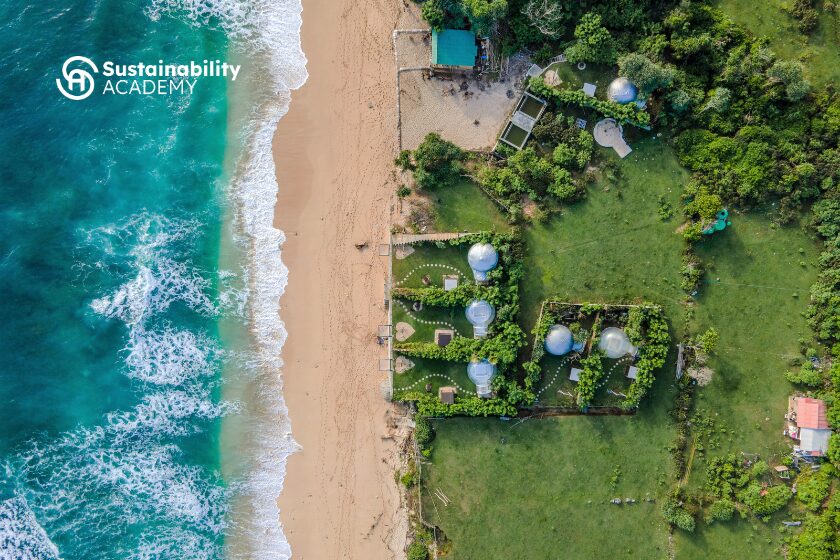Sustainable tourism 2025 is shaping up to be a global imperative. Destinations worldwide are pioneering eco-friendly initiatives that benefit both the environment and local communities — while meeting rising demand for conscious travel experiences.
Sustainable tourism directly supports the United Nations Sustainable Development Goals (SDGs), particularly Goal 12: Responsible Consumption and Production and Goal 13: Climate Action. The UN World Tourism Organization (UNWTO) Sustainable Development and the Global Sustainable Tourism Council (GSTC) Criteria provide widely adopted frameworks and standards for guiding these efforts.
Global Context
As sustainable tourism 2025 grows, global travel leaders face a complex challenge: balancing economic growth with environmental stewardship, social equity, and cultural preservation.
🇹🇭 Thailand: Innovating for Sustainability
Thailand is making major strides in carbon-neutral tourism, aligned with the nation’s Bio-Circular-Green (BCG) economic model (BCG Model Thailand).
The Tourism Authority of Thailand (TAT) collaborates with the Ministry of Higher Education, Science, Research and Innovation to integrate digital transformation and science-based solutions into the sector. Initiatives showcased at Thailand Travel Mart Plus 2025 included:
- Low-carbon travel packages
- Eco-conscious culinary experiences
- Promotion of off-peak travel to manage flow
“2024 will be the year of accelerating Resilience, transforming Thailand’s tourism into High Value and Sustainable Tourism that emphasizes on elevating and moving forward to a better tourism ecosystem.” says Yuthasak Supasorn, Governor of the Tourism Authority of Thailand (TAT)
Challenge: Managing the ecological impact of large tourist flows, especially in popular coastal regions like Phuket and Phi Phi Islands.
🇨🇷 Costa Rica: A Model for Responsible Tourism
Costa Rica remains a global model of eco-tourism and regenerative hospitality.
Lodges like Pacuare Lodge and Lapa Rios offer visitors unique ways to:
- Support indigenous communities
- Learn about rainforest conservation
- Participate in reforestation programs
According to Lapa Rios, the lodge is committed to ensuring that both the rainforest and the local community benefit from its operations, with programs focused on conservation, education, and community well-being.
Traveler feedback on platforms like Responsible Travel consistently cite Costa Rica’s blend of sustainability and authentic experience.
Challenge: Balancing the rapid growth in tourism demand with protecting fragile ecosystems — including turtle nesting beaches and primary rainforest zones.
Bhutan: Balancing Growth and Preservation
Bhutan’s “High Value, Low Volume” model remains one of the world’s most ambitious sustainable tourism policies. The Integrated Tourism Master Plan 2025-2034 targets:
- Enhanced sustainable infrastructure
- Increased tourism revenue without increasing tourist volume
- Diversification into nature-based and cultural tourism
Travelers contribute a daily Sustainable Development Fee (SDF) that funds conservation and cultural projects.
Challenge: Adapting tourism offerings while maintaining cultural authenticity and ecological balance.
Fiji: Community-Centric Tourism Development
Fiji promotes community-based tourism under the National Sustainable Tourism Framework (Fiji Framework).
Key efforts include:
- Sustainable Tourism Accelerator helping SMEs implement green practices.
- Targeted investment in marine conservation and coral reef protection.
Fiji recently hosted the Global Sustainable Tourism Conference 2025, reinforcing its role as a regional sustainability leader.
Fiji’s National Sustainable Tourism Framework (NSTF) 2024–2034 emphasizes a holistic approach to tourism, aiming to balance economic growth with environmental preservation and community well-being. The framework outlines goals such as promoting inclusive growth, managing environmental challenges, and preserving cultural heritage within the tourism sector
Challenge: Resilience against climate change — including sea-level rise and marine ecosystem stress.
Palau: Pioneering Eco-Tourism Practices
Palau’s globally recognized Palau Pledge — signed by visitors upon arrival — is one of the most innovative efforts in eco-conscious travel.
Palau’s Sustainable Tourism Strategy includes:
- Mandatory coral reef protection training for guides
- Visitor carbon offset options
- School programs promoting marine conservation
Challenge: Combating overtourism impacts in fragile reef ecosystems around Rock Islands Southern Lagoon — a UNESCO World Heritage Site.
Portugal: Integrating Sustainability into Tourism
Portugal’s Tourism Strategy 2027 supports the goals of sustainable tourism 2025 and prioritizes:
- Expanding renewable energy infrastructure at tourism sites
- Supporting local circular economy initiatives
The “Growing with Tourism Support Programme” funds sustainable tourism development.
Challenge: Ensuring consistent sustainability standards across small rural operators and mass-market providers.
Slovenia: Data-Driven Sustainable Development
Slovenia employs big data and analytics through its National Intelligence System for Tourism (NiST) to:
- Monitor carbon impacts
- Optimize visitor flows
- Support community-based tourism
The Slovenia Green Consortium unites public and private stakeholders around:
- Green mobility initiatives
- Sustainable accommodation programs
Slovenia’s National Intelligence System for Tourism (NiST) reflects the country’s commitment to using data-driven innovation to align tourism growth with sustainability goals. The system provides in-depth analysis of tourism’s environmental, economic, and social impacts.
Challenge: Sustaining broad stakeholder engagement as tourism rebounds post-pandemic.
Vietnam: Addressing Environmental Challenges
Vietnam tackles coral reef degradation in areas like Nha Trang Bay through:
- Marine protected areas
- Reef-safe product education
- Visitor behavior change campaigns
Challenge: Rapid coastal development continues to pressure fragile marine ecosystems, while climate-driven reef stress is intensifying.
Greece (Crete): Leading Mediterranean Sustainability
Crete is emerging as a Mediterranean leader in sustainable tourism.
Key efforts include:
- Hosting EU policy dialogues on sustainable tourism.
- Piloting AI-powered visitor flow management to reduce pressure on natural sites.
Challenge: Balancing high seasonal visitor volumes with ecosystem preservation. Local conservation groups call for stronger enforcement of protected area rules during peak months.
Conclusion
As these diverse examples show, sustainable tourism is no longer optional — it is an essential pathway for protecting the planet while enriching travel experiences.
For sustainable tourism 2025 to succeed, governments, businesses, and travelers must each play a role — setting standards, prioritizing ethics, and making conscious choices.
Empowering Sustainable Tourism Through Education
For travelers and professionals seeking to deepen their impact in sustainable tourism 2025, the Sustainability Academy offers online learning:
- Online Certificate on Carbon Reduction Strategy
- Online Certificate in Renewable Energy Fundamentals: The Path to Net Zero – New Course Release in June 2025
Through education, both organizations and individuals can contribute to greener travel and positive global impact.

